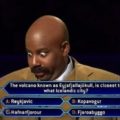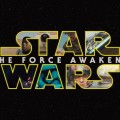Channel J Does Countdown
When one thinks of an iconic game show theme, the first song most people think of is probably “Think!” When you heard it just now, you immediately thought of Jeopardy!, didn’t you? There are a few who would probably think of “Where In The World is Carmen Sandiego” as well, but the majority of us associate deep thought with the thirty seconds contestants get to answer Final Jeopardy! questions (er, question Final Jeopardy! answers) like “President elected to 2nd term with 523 electoral votes, the greatest number in any election” or “Westernmost national capital in the Americas” or “This phrase first appeared in 1845, followed by ‘to overspread the continent alloted by providence.’ “
FDR, Mexico City and Manifest Destiny, in case you were curious.
In the United Kingdom, despite several attempts, Jeopardy! never caught on. Ironic, considering England is where the concept of the pub quiz originated. Instead, the most iconic game show theme on British television is the rather uncreatively named “Countdown Theme Song.” Also thirty seconds long, this theme tune is played several times per Countdown episode and has become as indelible a part of British culture as Think! has become to American culture.

So what is Countdown?
Inspired by the French game show Des chiffres et des lettres, gameplay in Countdown originally followed a similar pattern to gameplay in Jeopardy!, namely a first round, a second round, and a final puzzle worth extra. Currently, there are three rounds, with the final puzzle being played at the end of round three. The majority of Countdown consists of letter games, where nine random letters are chosen and the two players must form as large a word as they can with them. It’s similar to Scrabble (well, it’s more like Scrabble than the actual Scrabble game show was) with one major exception: contestants call for vowels or consonants one at a time, so some of Scrabble’s tougher situations, like when a player has only consonants to work with, only happen if a contestant does it on purpose.
At the end of thirty seconds, the players then say how long a word they got before revealing what they came up with. So for example, if the letters GLECAITRO were pulled, a contestant could say that they came up with the 7 letter word GLACIER. If the other player didn’t come up with another 7 letter word, the first contestant scores 7 points and the other contestant scores nothing. If they both came up with words 7 letters long, they both get 7 points, but if the other contestant managed to see LORICATE, then the other contestant scores 8 points and the first contestant scores nothing.
During a numbers game, six numbers are chosen from a small pool of large numbers and a larger pool of small numbers and the computer comes up with a random number that players can usually (although not always) reach by using any or all of the six numbers and creating an equation with them. If given the numbers 75, 5, 3, 7, 4, 6 with the target being 365, then one could multiply 75 by 5 and then subtract 6 and then further subtract 4. Sometimes a target number is unreachable (the computer is allowed to come up with numbers like that), so the closest to the target wins. Ten points are awarded for an exact answer in the numbers game, with less points awarded if a non-exact answer was best.
Each episode ends with the Countdown Conundrum, a scrambled nine letter word which awards ten points to the first person who can unscramble it, but no points are scored if neither player can get it within thirty seconds. Once the Conundrum is over, the player with the highest score wins and returns in the next episode to play against a new contestant. Despite that there are no cash prizes (a teapot is awarded to the winner of an episode), after a player wins eight times, they’re automatically retired and two new players compete in the next episode.
…that’s a good question. Most of the successful game shows in the United States are quiz shows. Wheel of Fortune doesn’t require players to spell the answers, and even Scrabble gave players crossword-style clues, which turned the game into a quiz show of sorts. In the US, the most successful spelling-related game show I can think of is Lingo, but the most a Lingo contestant has to know are enough five letter words to get by.
Countdown would, by design, attract a different type of player than Jeopardy! or Who Wants To Be A Millionaire? would. Noted game show champion Ken Jennings admitted in his book Ken Jennings’s Trivia Almanac: 8,888 Questions in 365 Days, “Math was never my strong suit in school” and looking at the performance of the following players on Scrabble, spelling may or may not be a concern for American contestants, too:
Interestingly, a version of Countdown was attempted but ultimately not brought to American television in the early 90s, and would’ve been hosted by someone named Michael Jackson who almost certainly would’ve had to be credited as Mike so as not to be confused with the singer.
The Last Word
Despite broadcasting in the land of pub quizzes, Countdown nevertheless has managed to accumulate over 6200 episodes and is so popular in England that comedy show 8 Out of 10 Cats has begun taping their own Countdown episodes alongside their regular panel show. Like Jeopardy! on this side of the Atlantic, Countdown shows no signs of stopping any time soon.
Stay tuned for more Channel J! On our next episode: …I think somebody’s chasing me.





